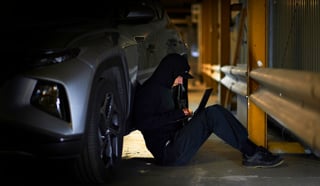As I’m writing this, I can look out of my office window and, craning my neck slightly, see the sun bright on the fields opposite where birds are darting from hedgerow to hedgerow.
It is an English summer idyll that could be soundtracked by Vaughan Williams.
But I’m thinking hard about winter tyres.
Why? Well, now is the right time for fleet operators to start considering whether to start taking winter tyres seriously.
The last two winters have been proper waist-deep-in-snow-and-sludge affairs.
Depending on where your fleet operates, your car and van drivers probably had their ability to get around severely curtailed for several weeks or months.
Even when they could take to the roads, they probably did so with trepidation as their cars slipped and slid on icy surfaces.
This almost certainly had a direct effect on their productivity and your profitability – a field sales team can’t make field sales calls if they can’t move off their drive when it snows because their car is fitted with tyres that are simply not designed for the conditions.
Of course, there is also a legal/ethical element to the winter tyres debate.
If you are asking drivers to take to the highways in tricky conditions, there is a strong duty of care line of reasoning that points to you making sure that they are doing so on the right rubber.
It is human nature that most fleet managers will start thinking about winter tyres around the time that the snow symbol makes its first appearance on the BBC TV weather forecast but, by then, it will be much too late.
If you really believe that there are good economic and ethical arguments for fitting winter tyres to your fleet, then you need to start looking into the issue and placing orders pretty soon, as well as making arrangements for tyre swaps and storage.
Certainly, the suppliers who we work with through our 1link Service Network e-commerce platform are already taking orders from fleets for next winter.
By the time that England are playing the last Test Match of the summer, it’ll probably be too late.





















Login to comment
Comments
No comments have been made yet.